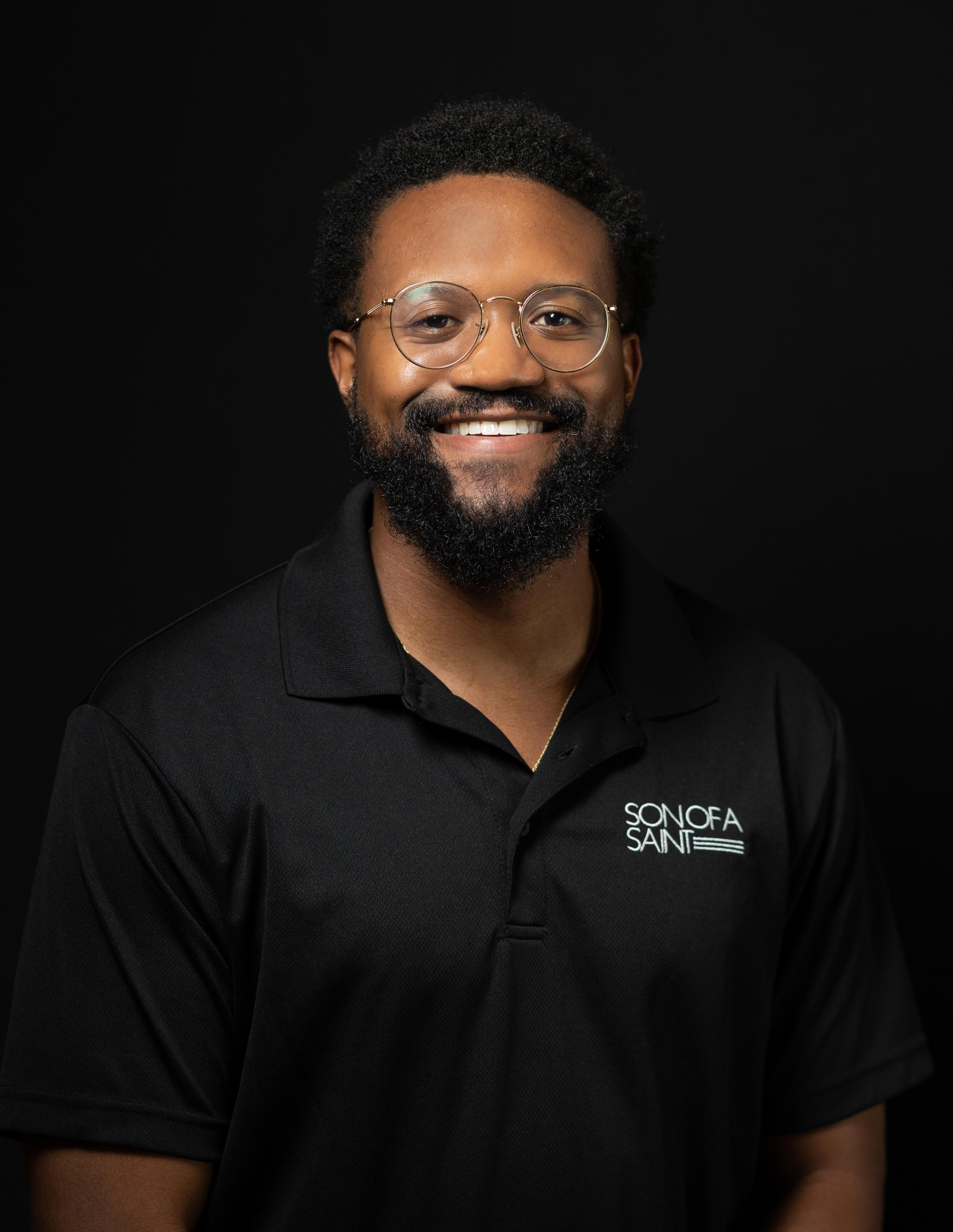

MENTOR HANDBOOK

A bright future is never guaranteed, and even less so for boys growing up without access to a father figure. Fatherless homes produce 85% of the youth prison population, 71% of high school dropouts and 75% of male patients in chemical abuse centers.
Son of a Saint exists for the fatherless boys of New Orleans, providing a necessary intervention at a critical time. We currently serve more than 350 boys in the program, ranging in age from 10-21, all of whom do not have a relationship with their father, the vast majority having lost their father to violence or long-term incarceration.
We give them hope, vision, opportunity, and, above all, the benefit of a good example, in the form of a dedicated Son of a Saint mentor. We want to thank you for your commitment to our mission of providing fatherless boys with the support, relationships, experiences and tools they need to become productive men.
This primer provides an introduction to Son of a Saint and our mentoring philosophy, which includes group and one-on-one mentoring. We hope that you use this handbook as a guide to mentor our boys.
Thank you.
Sincerely,
Bivian “Sonny” Lee Founder & Executive Director, Son of a Saint
Mandatory Reporting
- Discipline or Abuse?
- Signs of Maltreatment
- Neglect/Medical Neglect and Signs of Neglect
- Physical Abuse and Signs of Physical Abuse
- Sexual Abuse and Signs of Sexual Abuse
- Emotional Abuse and Signs of Emotional Abuse
- If a Child Discloses Abuse/Neglect:
- What to Report, When, and to Whom
- Failure to Report
- Immunity from Legal Liability
Additional
Importance
First
Establishing the Mentoring Relationship
Developing
Building
Building
Cultural
Boundaries
Difficult
Confidentiality
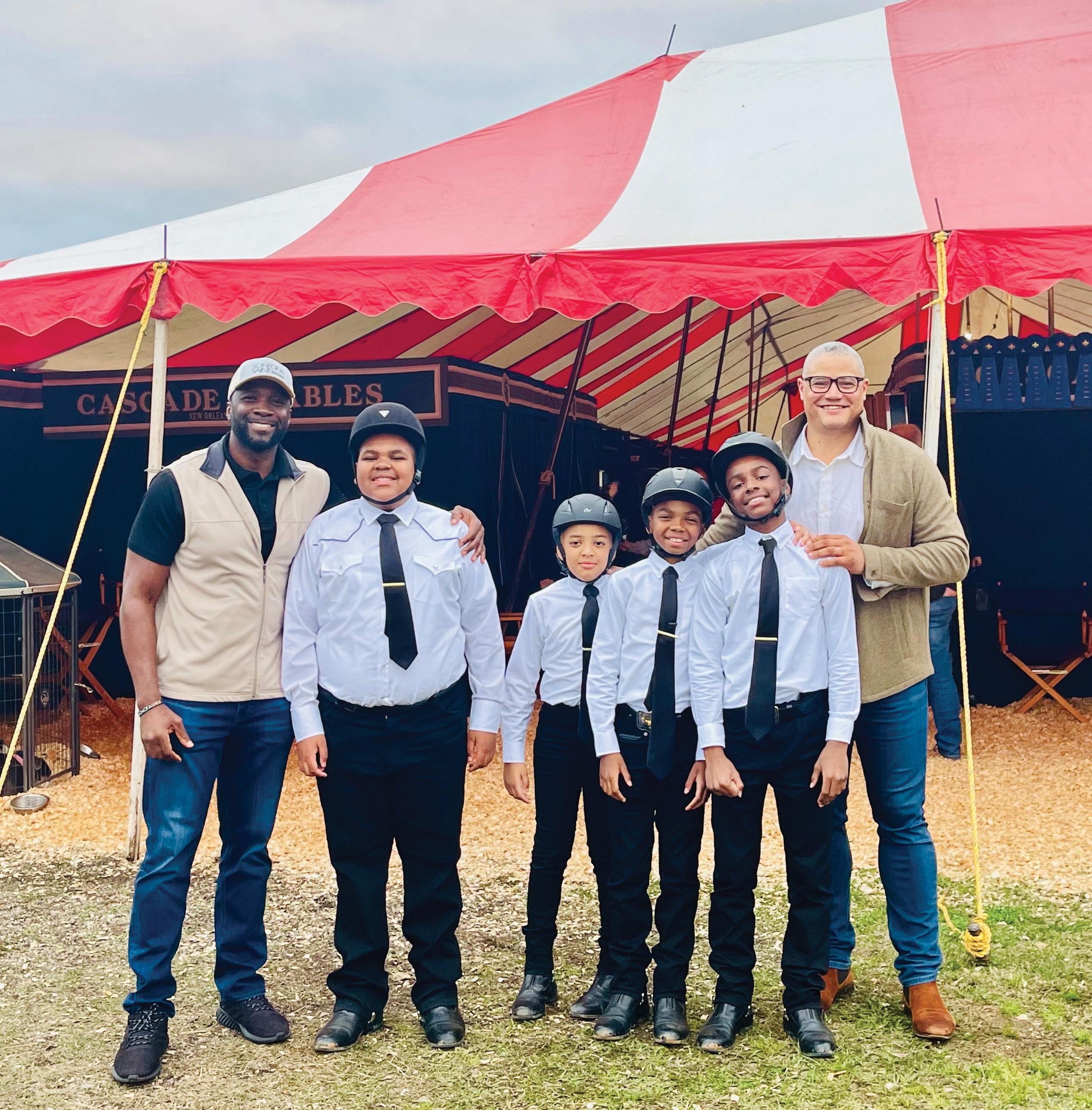
WELCOME TO THE SON OF A SAINT FAMILY!
The Son of a Saint model is holistic and responsive, founded on an enduring mentee-mentor relationship. We want to take this opportunity to acknowledge your commitment to our cause and would like to express sincere appreciation for your continued support of our most foundational goal.
Mentors, thank you for taking this step to further support our boys!
INTRODUCTION
ORGANIZATIONAL ORIGINS
Bivian Lee, Jr. was an NFL defensive back for the New Orleans Saints from 1971 to 1975. Tragically, in 1984 Bivian died at the young age of 36 after suffering a heart attack. He left behind a wife, a five-year old daughter, Tamica, and a three-year old son, “Sonny” Lee, III.
As an adult, Sonny came to understand the struggles and challenges his mother faced, and he gained a real appreciation for the opportunities he had as a child –opportunities the average boy would not be afforded. From access to psychiatrists who helped him navigate through anger issues associated with the loss of his father, to the ability to participate in sports leagues and enjoy relationships with teammates and coaches, Sonny was convinced that the array of opportunities made him who he is today.
In turn, Sonny founded Son of a Saint on January 1, 2011, in honor of his late father and single mother. He aims to “pay it forward” and replicate his own experience for a special group of fatherless young males in the community.
Son of a Saint selects a group of boys ages 10-12 each year to join the existing kids in our program. The boys must be fatherless due to their father’s incarceration, death or abandonment. Each boy remains an official Son of a Saint mentee until he is 21, but the connections remain, and we continue to advise and support him in the years that follow. Our goal is to graduate self-sufficient, independent thinkers who are leaders and give back to their community.
Son of a Saint equips boys with the tools they need to become productive men. We give them hope, vision, and opportunity. We provide a secure and consistent environment for them. But the Son of a Saint mentors’ most important role is simply to be a good example.
The boys must maintain a minimum of 2.8 grade-pointaverage, complete four hours of community service each month, and maintain good conduct at home, school and within the Son of a Saint organization.
Son of a Saint accepts applications throughout a designated enrollment period, conducts interviews and selects a new cohort annually.
LOGIC MODEL
We support every facet of boys’ lives with programming that meets boys where they are based on specific needs and circumstances. The result is a formula for success tailored to each boy. Son of a Saint’s Logic Model demonstrates how each element of our program leads to specific outcomes – and ultimately to a successful and healthy adult life.
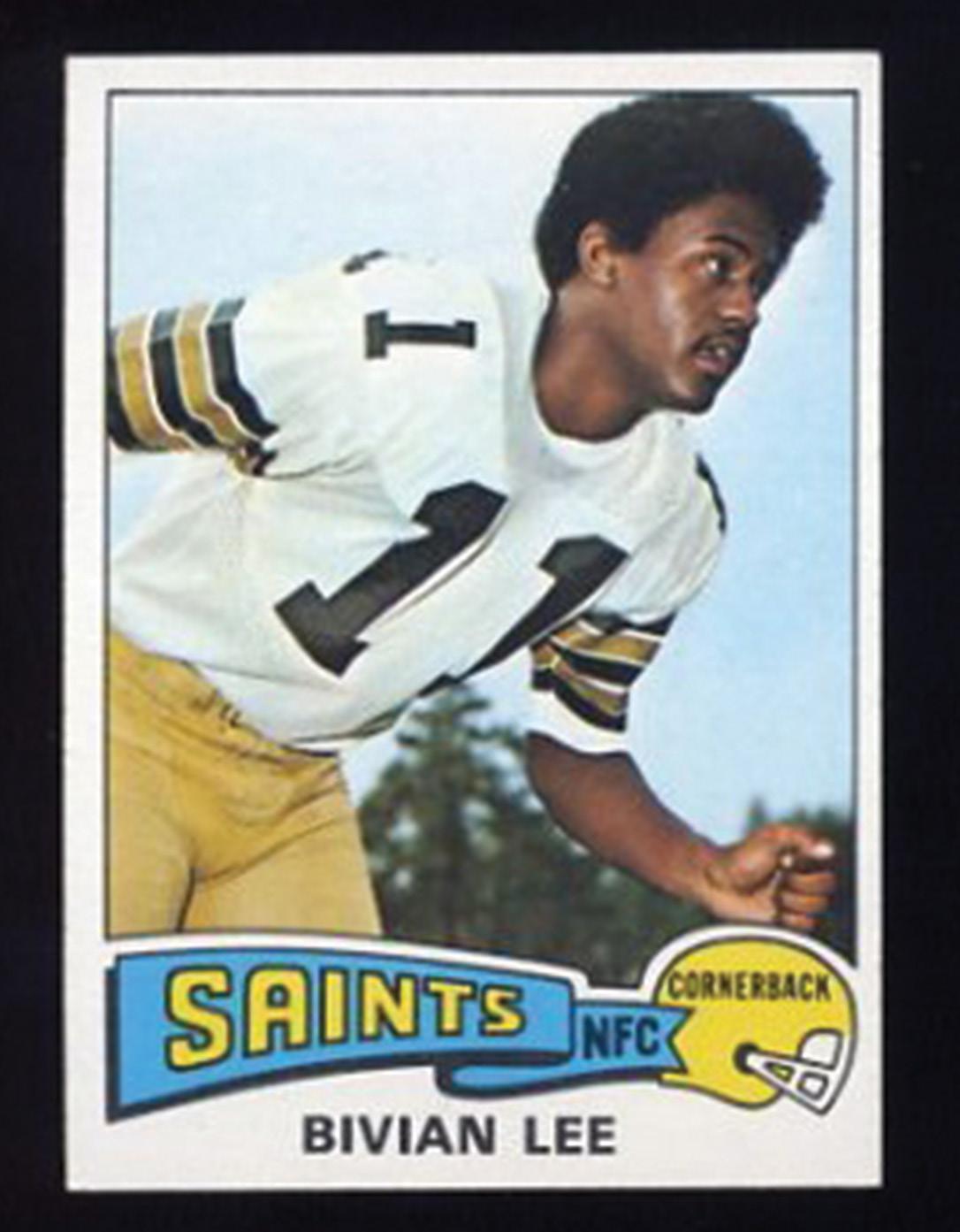
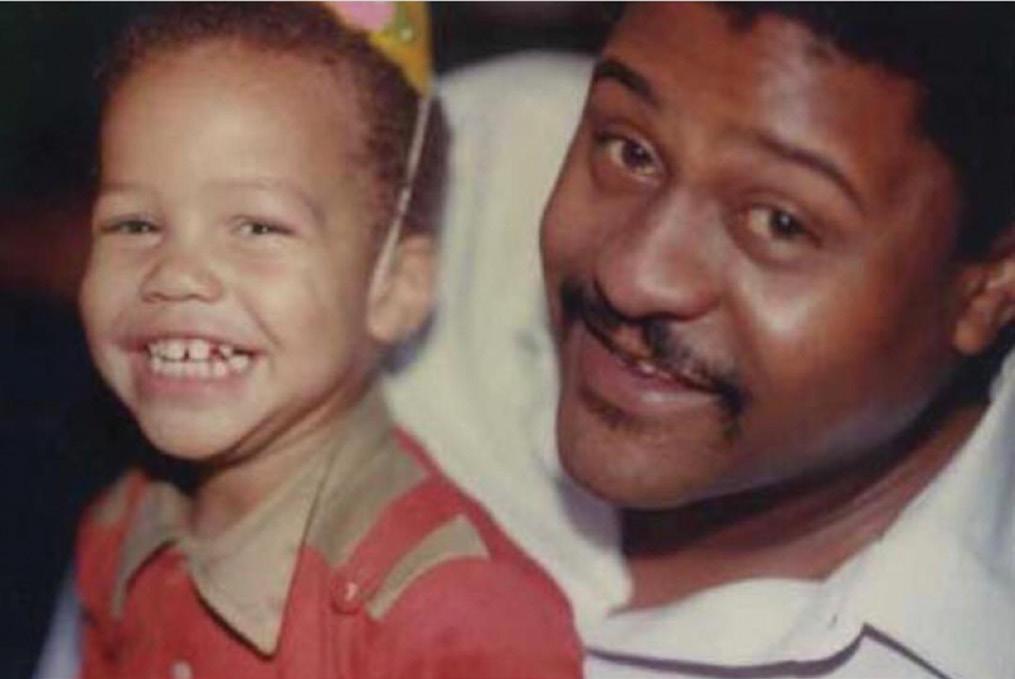
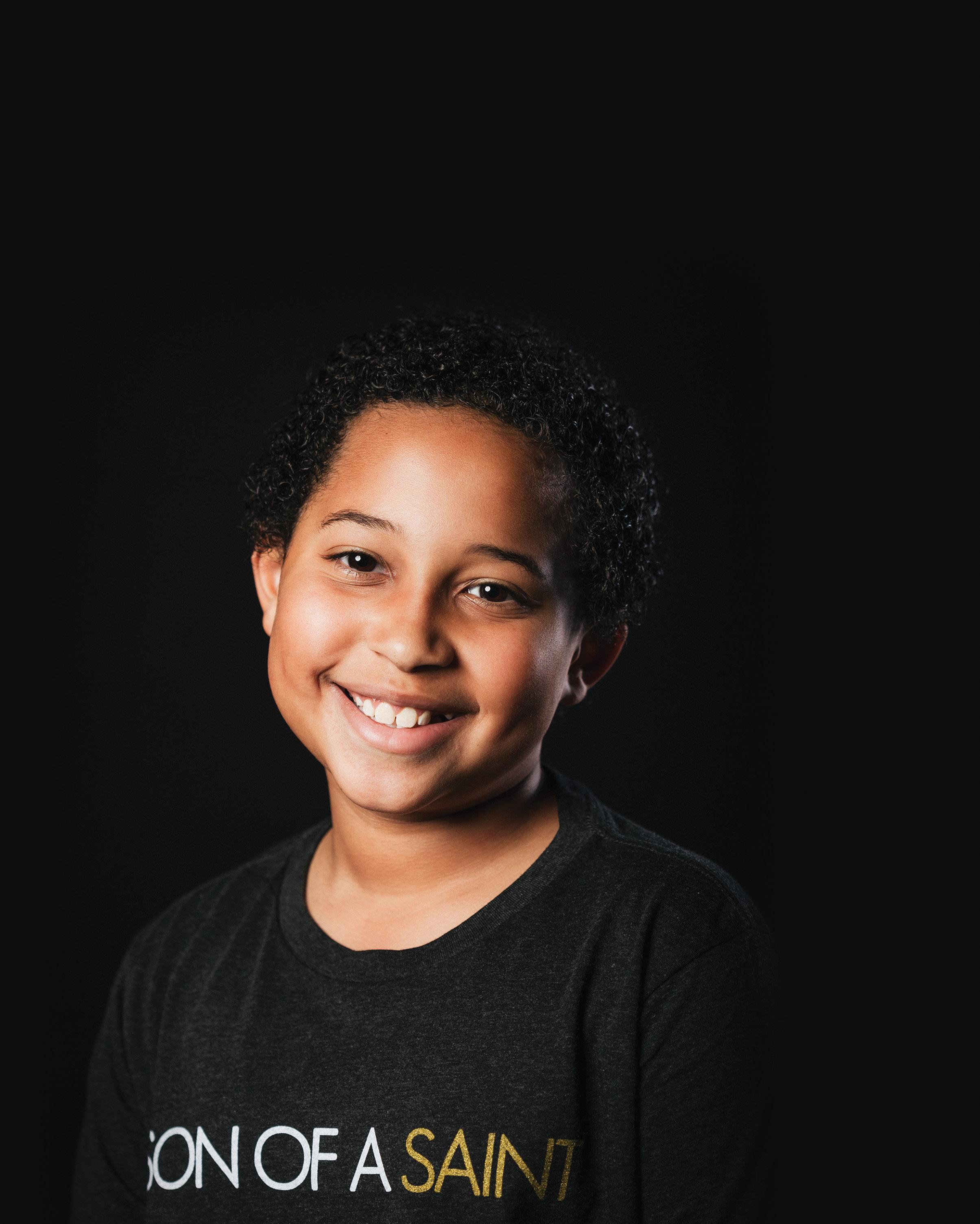
SUPPORT: IT TAKES A VILLAGE
GUARDIAN
Son of a Saint’s ultimate goal is to equip our boys with the tools they need to become productive men.
We give them hope, vision and opportunity.
Our mentors, staff, facilities, and extensive programming provides the secure and consistent environment they need.

TEACHERS
SON OF A SAINT TEAM
Mentors
Case Managers
Mental Health Team
Recreation Coordinators
Success Coaches
Tutors/Coaches/Volunteers
Alumni
Community Partners
PROGRAM
INPUTS
FATHERLESS BOYS, AGES 10-21
ACTIVITIES OUTPUTS
MENTORSHIP
+ Enrollment and retention
+ Number of pairings
+ Number of mentee outings
SON OF A SAINT STAFF GROUP ACTIVITIES + Number of boys participating in 2+ activities per month
SON OF A SAINT LEADERSHIP
ADVISORY COMMITTEES
MENTORS
VOLUNTEERS
FUNDERS & SPONSORS
COMMUNITY PARTNERS
MENTAL HEALTH
+ Number of counseling hours + Crisis intervention
EDUCATIONAL SUPPORT
+ Number of scholarships + Number of tutoring sessions
TRAVEL
CASE WORK
COLLEGE EXPLORATION
CAREER DEVELOPMENT
+ Number of trips per year + Number of camps attended
+ Number of referrals/ resources
+ Number of seniors applying to a post secondary education program
+ Number of internships/jobs
OUTCOME
SHORT-TERM
Age 10-14
HIGH SCHOOL READY
+ Increased support network
+ Improved ability to manage emotions
+ Fewer unhealthy behaviors
+ Positive conduct at school, home, extracurricular, and/or in the community
+ Academic improvement
+ Increased access to services
MID-TERM
Age 14-18
LONG-TERM
Age 18+
COLLEGE READY
SUCCESSFUL & HEALTHY LIFE
+ Enrolling in a high school that matches interests and academic/ social needs
+ Sustained positive support network
+ Sustained social and emotional health
+ Sustained good conduct
+ Increased awareness of legal rights / decreased interactions with legal system
+ Increased knowledge and readiness for postsecondary education
+ Mentees go to college/ post-secondary school
+ Mentees complete college/post-secondary school
+ Mentees are employed in mid-or high-skilled positions
+ Mentees engage in personally-fulfilling activities
+ Mentees maintain connection to Son of a Saint and return to volunteer
Copyright © 2024 Son of a Saint
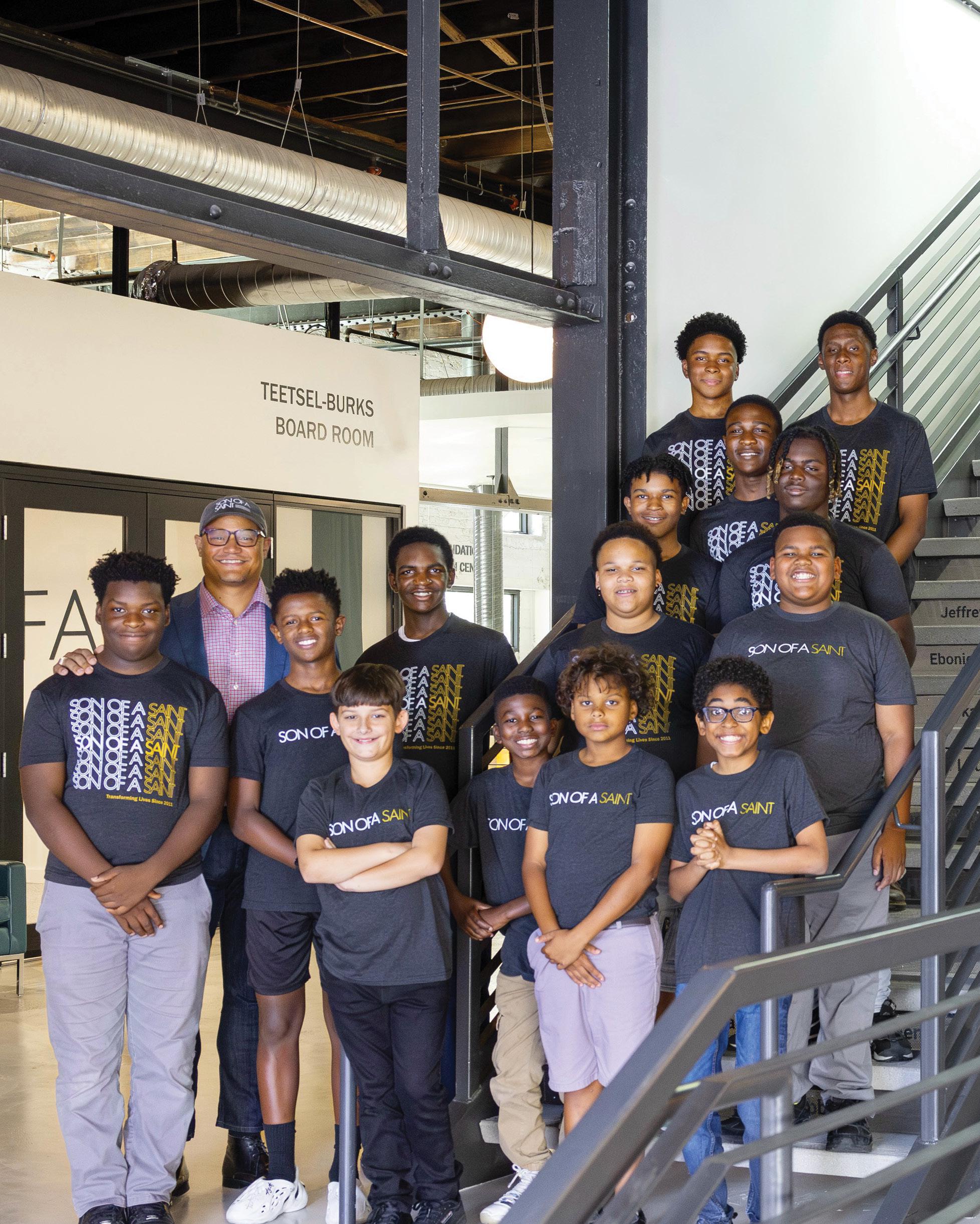

MISSION STATEMENT
Son of a Saint exists to transform the lives of fatherless boys through mentorship, emotional support, development of life skills, exposure to constructive experiences and formation of positive, lasting peer-to-peer relationships.
VISION STATEMENT
To be the premier organization for training and mentoring fatherless boys from youth through adulthood in the United States and beyond.
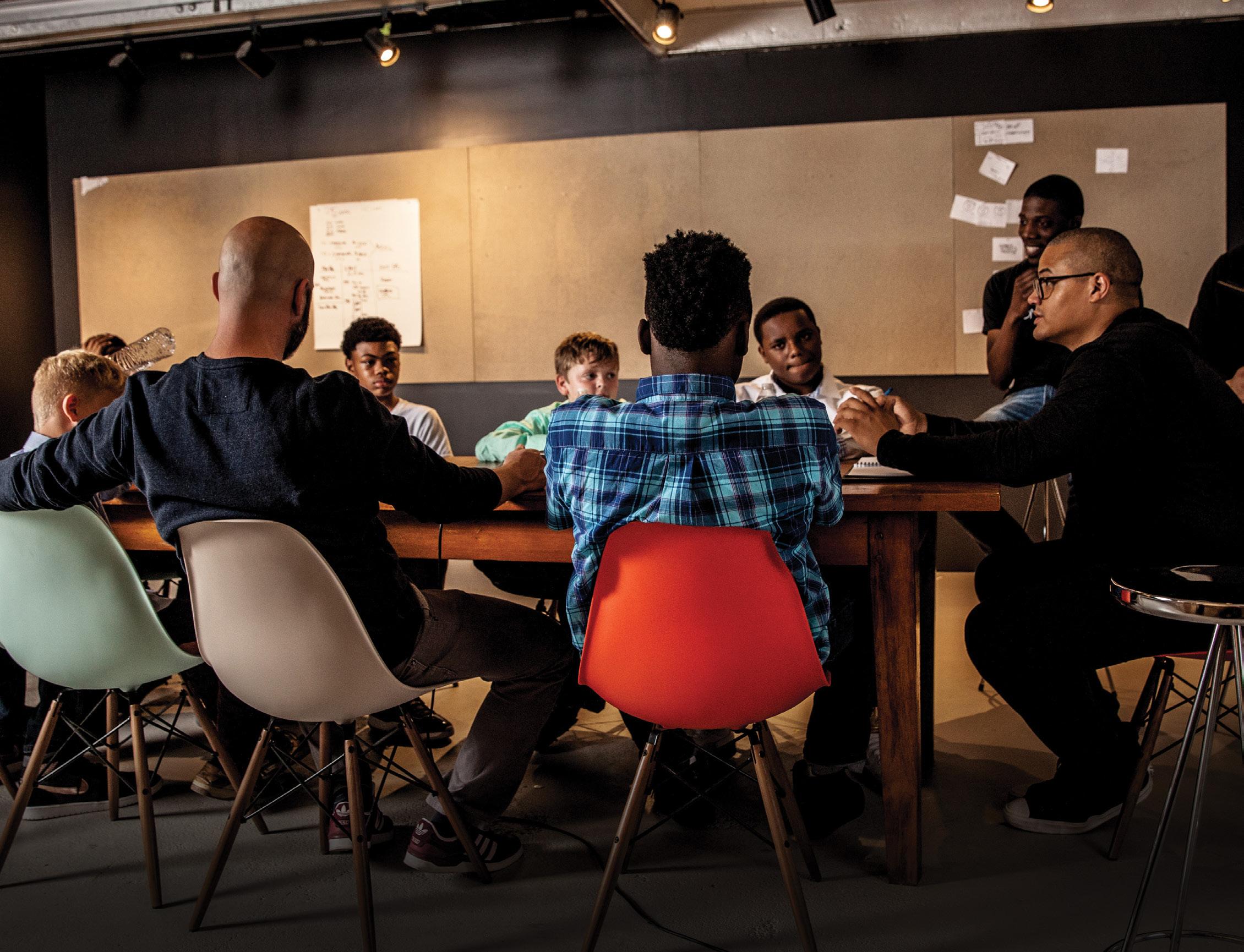
ORGANIZATIONAL VALUES
We serve young men between the ages of 10-21 who have lost their fathers, largely due to violence or long-term incarceration. The cornerstone of our approach is male mentorship, which means providing each young man with a dedicated male mentor. We are entrusted to enhance and transform the lives of fatherless young men who face countless systemic barriers. We believe that our mentees are special individuals who are important to our community, our country and the world. It is our job to ensure these young men have every opportunity and all support needed to move past external barriers and grow into outstanding, self-sufficient, and healthy adults. As such, we commit ourselves to actively cultivate an environment of positivity, acceptance, and safety-- one that teaches program participants to understand and appreciate differences and commonalities. Every person who interacts with our program carries this responsibility. Son of a Saint’s program
is centered on building trust and creating a welcoming, inclusive, and safe space for the fatherless young men that we serve. It is only through inclusive and equitable treatment that we are able to give our mentees opportunities, a sense of brotherhood, and a supportive community. Son of a Saint recognizes that human differences foster opportunities to learn from the experiences of others. Accordingly, enrolled Son of a Saint mentees of all backgrounds, circumstances, and identities are accepted. Son of a Saint considers, includes, and embraces all people who interact with our program. This level of inclusivity extends to mentees, mothers, guardians, mentors, staff members, volunteers, Board members, community partners, and supporters, regardless of their race, nationality, ethnicity, gender, religion, sexual orientation, socioeconomic status, age, or mental and physical ability.
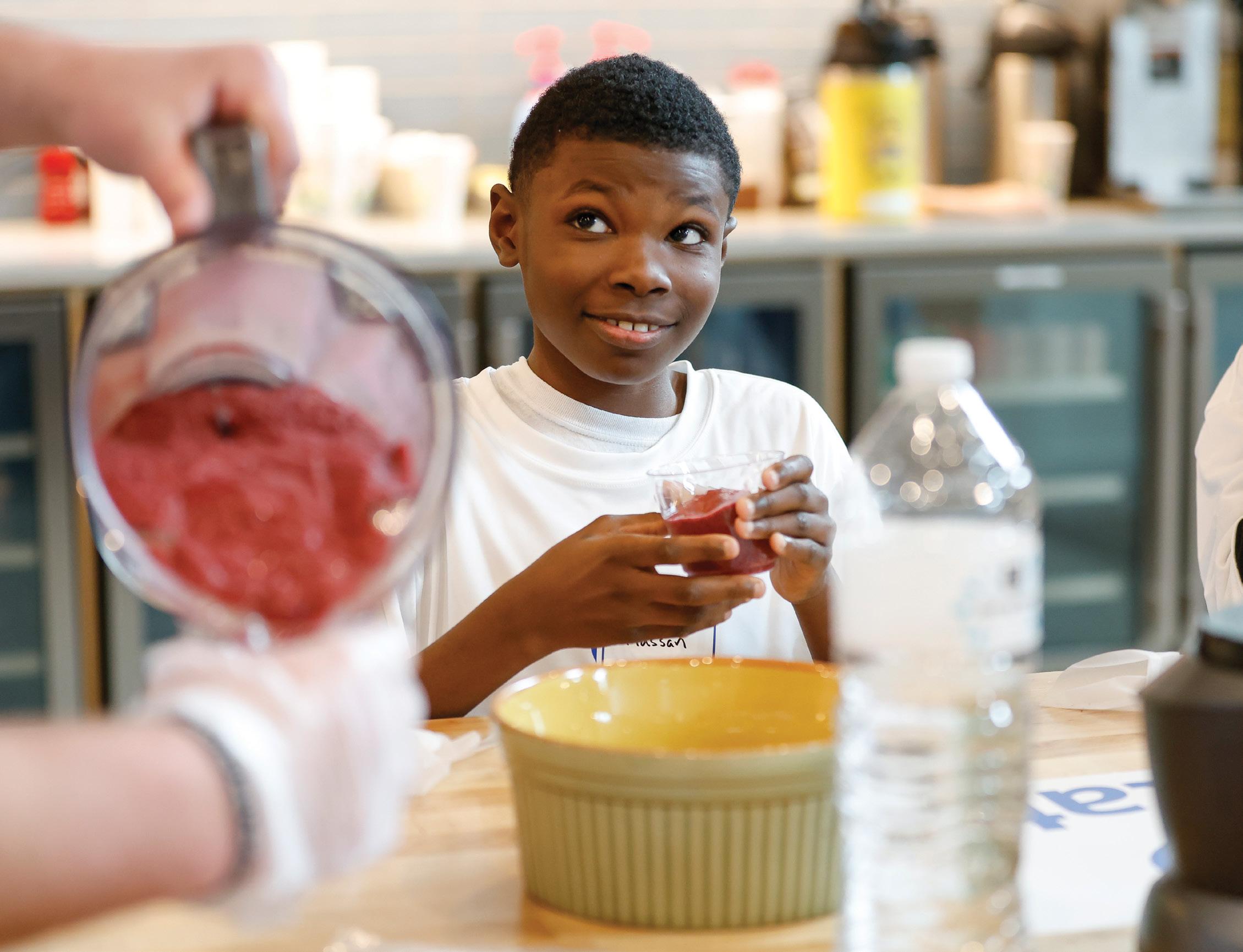
DIVERSITY, EQUITY AND INCLUSION (DEI) STATEMENT
Son of a Saint’s mission is to transform the lives of fatherless boys through mentorship, emotional support, development of life skills, exposure to constructive experiences, and formation of positive, lasting peer-to-peer relationships. We believe that our mentees are special individuals who are important to our community, our country and the world. It is our job to ensure these young men have every opportunity and all support needed to move past external barriers and grow into outstanding, self-sufficient, and healthy adults. As such, we commit ourselves to actively cultivate an environment of positivity, acceptance, and safety — one that teaches program participants to understand and appreciate differences and commonalities. Every person who interacts with our program carries this responsibility. Son of a Saint’s program is centered on building trust and creating a welcoming, inclusive, and safe space for the fatherless young men that we serve. It is only through
inclusive and equitable treatment that we are able to give our mentees opportunities, a sense of brotherhood, and a supportive community. Son of a Saint recognizes that human differences foster opportunities to learn from the experiences of others. Accordingly, enrolled Son of a Saint mentees of all backgrounds, circumstances, and identities are accepted. Son of a Saint considers, includes, and embraces all people who interact with our program.
Becoming a mentor is a big commitment and before taking the step to apply as a Mentor within Son of a Saint, it is important to consider the commitment required and learn about the organization to determine if it is a good fit for you personally. The following section gives an overview of our mentor program, commitments, and an overview of the initial process to become involved.
OVERVIEW
At the highest level, a mentor’s role with Son of a Saint is to:
• Serve as a friend.
• Be an advocate.
• Help motivate.
• Coach the mentee in the formation of attainable goals.
• Support the mentee in striving for academic success.
Although the high-level role is clear, mentorship at Son of a Saint is not a one-size-fits-all model and can take shape in a number of different ways.
TYPES OF MENTORS
One key aspect of mentorship at Son of a Saint is that there are different types of mentors depending on desired, and demonstrated, level of engagement with the organization and our mentees.
ONE-ON-ONE MENTORSHIP
This is one mentor, one assigned mentee, in a committed mentorship relationship brought about through an organic process supported by the Case Manager. Specific goals and objectives of the mentorship relationship will be discussed and agreed upon on a case-by-case basis. The commitment is to connect once per week with the mentee, stay in close contact with the guardian and case manager, attend events and provide updates on the mentoring relationship.
CO-MENTORING
One assigned mentee is paired up with two mentors in a committed mentorship relationship brought about through an organic process supported by the Case Manager. The commitment at this level is to attend two events per month.
TEAM/GROUP MENTORSHIP
Engages any ration of mentees to mentors; it helps mentors and mentees form group relationships.
ACADEMIC MENTORSHIP
Support for success in school; they serve as a tutor, study buddy, or accountability partner.
CAREER MENTORSHIP
Supports career development programming; they serve as an employer, career coach, or job shadowing/internship site Manager.
COMMITMENT
Listed below is the basics of what we expect of our mentors:
• 4+ hours or at least 2 events per month.
• 1 year commitment for One-on-One mentors.
• Completion of a two-hour orientation/training.
• Successfully passing a background check.
• Completing an interview/connect with staff.
• Attending events and connect with mentees.
- Group mentoring: Attend two events per month.
- Individual mentoring: Connect once a week.
• Create an account on Golden and actively check for programming events to engage with mentees (required).
• Submit monthly mentor/match updates to the Volunteer Manager.
It is extremely important that new mentors fully understand the commitment that they are undertaking. Mentoring can be an extremely rewarding way to volunteer but there are a wide number of different circumstances and questions that you may have going in or along the way. To help ensure that you have a resource to answer questions and hear from other active mentors within the organization we have created the Mentor Ambassador Council (MAC). Founded in 2024, the MAC is dedicated to supporting Son of a Saint by focusing on recruitment and organizing events aimed at mentor retention. Additionally, it provides assistance to mentors as they navigate their experiences within the organization.
If an aspiring Mentor has questions about the organization or anything related to Son of a Saint, please reach out to the MAC at the following email for support — mac@sonofasaint.org.
Additionally, it is important to highlight that you may find that you want to support or be involved with Son of a Saint but are concerned about the ability to fully commit to being a mentor at this time. We do often have a variety of volunteer opportunities available and Son of a Saint depends on volunteers for a variety of functions critical to the operational success of the organization. Volunteering with Son of a Saint is a rewarding way to make a difference for our boys and our city. Our volunteer application and additional information can be found here — sonofasaint.org/join/#/volunteer-application
If you are ready to commit to being a mentor, the first step is to fill out a mentor application. If you haven’t done this already the form can be found here — sonofasaint.org/mentorapplication
INTERVIEWING
After an aspiring Mentor fills out an application, the following steps are to be completed:
MENTOR INTERVIEW/ONBOARDING
STEP-BY-STEP PROCESS:
1. Mentor candidate signs up through online application.
2. Email message from Volunteer Manager within 48 business hours.
3. Email messages from the background check vendor are sent to mentor candidates.
4. Candidates must complete background check via link provided by the background check vendor within 48 hours.
5. Background checks will be reviewed. Background checks are reviewed by the following:
a. C-suite leadership (Founder + CEO, and CFO + COO)
b. Director of Community Engagement
6. If a Mentor candidate is deemed ineligible based on their background check, Mentor candidates will be notified that they are not approved to move forward in the Mentor candidate review process.
7. If a Mentor candidate is deemed eligible based on their background check, Mentor candidates will be invited to schedule an interview through the Calendly app. Mentor candidates will be interviewed by one or more of the following staff and/or volunteers:
a. Mentor & Alumni Engagement Specialist
b. Volunteer Manager
c. Director of Community Engagement
d. Members of the Mentor Ambassador Council (MAC)
8. If the Mentor candidate does not pass the interview they are notified that they are not approved to move forward in the interview process.
9. If the Mentor candidate passes the interview, the Mentor candidate is emailed directions to complete the LA Mandated Reporter Training provided by the Louisiana Department of Children and Family Services.
10. After the Mentor candidate completes the LA Mandated Reporter Training, the Mentor Online Training Module is emailed with a deadline for completion of the module program session within 14 days.
11. Once the Mentor candidate completes the Mentor Online Training Module, the Mentor candidate is invited to a mentor onboarding session at Son of a Saint’s headquarters, which will happen in-person monthly.
12. Upon onboarding, mentors receive access to Golden app, GroupMe texts, email communication, etc.
13. Based on engagement, active and consistent mentors are eligible for mentee pairing or to remain a group mentor.
TRAINING
All mentors with Son of a Saint are required to complete Mandatory Reporter Training provided by the Louisiana Department of Children & Family Services (through the DCFS website), Online Mentor Training, and Onboarding training before they attend group events. Onboarding training is conducted by SOAS staff, along with participation from MAC members, and takes place in person at The Ochsner Health Son of a Saint Bivian Lee Jr. Center. This meeting serves as an introductory session to outline the goals and expectations of mentorship and to officially designate each participant as a Mentor in training with Son of a Saint before they attend group events.
During this training you will complete the following tasks:
• Review SOAS Mentor Handbook as a group
• Perform Administrative Items - Copy of License, Car Insurance if applicable, Headshot, Mentor Contract and Adoption etc.
• Receive access to digital communications (via GroupMe)
• Create an account on Golden volunteer management app (required)
• Receive official Son of a Saint gear and take a group photo for mentorship recognition and introductions to the organization and external groups
Additional educational seminars (professional development) are also offered to our mentors. There will be many challenges that come with being a Mentor and mentor training sessions that Son of a Saint hosts are a great way to equip yourself with the tools to be successful.
Some examples of Continuing Education (CE) training include:
• Adverse Childhood Experiences (ACEs).
• Suicide prevention workshops.
• Health focused seminars (nutrition, sexual education) .
Becoming a mentor is an exciting process. We believe a successful mentorship is supported through staff encouragement and planned interactions between mentors and mentees. Due to this approach, it is not possible to give an exact timeline when you may be successfully matched with a mentee. Trust the process and know that you have ample support throughout the organization.
FIRST ACTIVITIES
During the new mentor onboarding session mentor introductions take place. This is in-person and held at the Ochsner Health Son of a Saint Bivian Lee Jr. Center. New mentors will receive an organizational overview as well as testimonials from the Mentor Ambassador Council (MAC). Generally, mentors will share their name, hometown, occupation, interests and why they chose to join Son of a Saint as mentor. Communication is open, but professional in nature. The Volunteer Manager will invite mentors to the Son of a Saint GroupMe chat. In this chat, Mentors are able to share experiences, post opportunities to get together as Mentors and Mentees. These meetings are a great chance to meet senior mentors, learn even more about the organization and for networking.
Outside of the new mentor onboarding session, a Mentor should attend at least four events within the first two months; solicitation is not allowed at any time.
PROGRAMMING & EVENTS
Events are the cornerstone of the beginning stages of the mentor and mentee relationship, so it is important that mentor expectations are clear. We ask all mentors to RSVP for events via the Golden app at a rate of at least 2 events/ month. Please arrive at these events on time as this helps us model good behaviors with our Mentees. Each event will have a lead mentor or staff member present and Mentors should check in with the designated Son of a Saint point of contact and offer to help set up and interact with Mentees already in attendance, etc.
Mentors should check in with the designated Son of a Saint point of contact and offer assistance with set up, as well as engage with with Mentees who are already in attendance.
Important do’s and don’ts for Son of a Saint events:
DO
• Wear Son of a Saint gear.
• Engage with Mentees as they arrive.
• Pay close attention to boys who look like they’re off to the side by themselves and encourage them to engage or find a commonality with them to engage in conversation if appropriate.
DON’T
• Attend while under the influence of alcohol or drugs, partake in alcohol or drugs while at the event, and smoke or swear while in the presence of mentees
• Be alone with any of the mentees - the preference is to have two Mentors or multiple Mentees
• Socialize exclusively with other Mentors
• Watch or share pornography with mentees or mentors
• Carry a weapon while in the presence of a Mentee and/or attending Son of a Saint events
PAIRING PROCESS
Once a Mentor is eligible to be paired, an enhanced focus on attending events and building relationships with mentees and staff is essential to success. Although we have hundreds of mentees in the program, you’ll start seeing the same familiar faces repeatedly as you attend more events on a regular basis. Sometimes these mentees are simply more engaged with the program, but more commonly, their increased level of attendance happens because they are newer mentees who are more likely unpaired. Keep this in mind as our goal is to have as many mentor and mentee pairings as possible.
At events look for common interests or activities with Mentees, discuss opportunities to get involved with Case Managers. Ask any Son of a Saint programming staff member whether or not a particular mentee is already paired, and confirm with their Case Manager if a certain Mentor is already identified as a potential pair. This can be an exciting time for you and your prospective Mentee as you learn more about each other through spending more time together. Most commonly this process transitions smoothly to a paired relationship.
When you are eligible for pairing and you feel a solid connection with a particular mentee and are interested in being paired, reach out to a Son of a Saint programming staff member by emailing programming@sonofasaint.org. This will help avoid situations where the mentee is already paired or if the mentee is already in the process of being paired.
If a Mentee asks you to be their Mentor directly:
• First, affirm to the Mentee that you feel honored/ humbled to be asked.
• Then, explain that this decision isn’t only up to you and that you’ll need to reach out to the programming team to inform them of your conversation.
In order to assist in facilitating pairing, every trimester, Case Managers (CMs) will identify 3 specific interests/hobbies from unpaired mentees as well as needs/expectations they have for their one-on-one mentor. For mentees who are committed to a yearly SOAS club or team such as karate, robotics, flag football, etc., they have the option to remain under Team/Group Mentorship or opt into one-on-one mentorship. Mentees who do not want a mentor can opt out of the pairing process. Every trimester, the Mentor & Alumni Engagement Specialist identifies 3 specific interests/hobbies of all unpaired mentors. Established, unpaired mentors will be asked to identify 1-3 mentees that they have rapport with. Mentors who are not ready to be paired will be moved to the volunteer pool.
In some instances due to factors often outside of the control of the Mentor, the paired relationship may not progress. In these unusual instances, please do not feel discouraged. Successful mentorship is an evolution of activities and experiences to bring Mentor and Mentee together. Trust the process and know that you have ample support throughout the organization.
MENTOR MIXERS
Every other month, Son of a Saint will host Mentor/ Volunteer mixers. These events are a great way to build camaraderie amongst each other and learn from “veteran” Mentors in an informal setting. Use these events as opportunities to learn and develop your own path to mentorship.
If a Mentee asks you to be their Mentor directly:
• First, affirm to the Mentee that you feel honored/ humbled to be asked.
• Then, explain that this decision isn’t only up to you and that you’ll need to reach out to the programming team to inform them of your conversation.
The Pre-Pairing Process should be an exciting time for you and your prospective Mentee as you learn more about each other through spending more time together. Most commonly this process transitions smoothly to a paired relationship.
In some instances due to factors often outside of the control of the Mentor, the paired relationship may not progress. In these unusual instances, please do not feel discouraged. Successful mentorship is organic and unforced, best experienced through allowing the pre-pairing process to advance naturally and without stresses. Trust the process and know that you have ample support throughout the organization.
PAIRING DO’S & DON’TS
At this point a mentor and mentee have now been identified by the programming team as a potential pair and the process begins. Once the programming team has paired you up with a potential Mentee, the focus will be on cultivating that relationship and developing a higher level of trust between
Important do’s and don’ts during this time period:
DO
• Have at least two face to face outings with your mentee each month.
• Reach out to your Mentee directly at least once per week via text or phone call.
• Communicate at least once a week with the mentees guardian.
• Include the guardian in all written communication with the mentee (i.e. text and email).
DON’T
• Feel pressured to purchase anything for your mentee.
• Bring your mentee to any non-public areas on any occasion.
• Engage in any activity that might be interpreted as a mentor paying a Mentee, i.e. to do your chores around the house, run errands for you, etc.
• Be alone with any of the mentees - the preference is to have two Mentors or multiple Mentees.
• Don’t make stops during transportation that the Mentee’s Guardian is not aware of.
• Allow a mentee to sleep overnight at your residence or have an overnight with a mentee at any other location.
• Attend under the influence of alcohol or drugs, partake in alcohol or drugs while at the event, and smoke/vape or swear while in the presence of mentees.
• Watch or share pornography with mentees or mentors.
• Carry a weapon while in the presence of a Mentee and/ or attending Son of a Saint events.
This section contains tips for the creation of a successful mentoring relationship, cultivating effective communication as well as resources for difficult topics or experiences that can come up. By no means is this an exhaustive list of topics and your Case Manager is the primary resource for you to engage with should you encounter situations that you don’t know how to navigate.
ESTABLISHING THE MENTORING RELATIONSHIP
The mentoring relationship should be viewed as a process which passes through various developmental stages. Joseph Pascarelli developed the four-stage mentoring model: initiation, cultivation, transformation, and separation.
INITIATION
The initiation stage consists of a set of experiences during which the mentor and the mentee are discovering mutual attractions. This is the “checking-out” stage: the mentee, sensing experience, knowledge, and authenticity; the mentor, a chance to influence, a willingness to connect, and the potential of fulfillment.
CULTIVATION
The cultivation stage is marked by opportunities for the mentor to encourage, affirm and accept the views of the mentee. The mentor intentionally builds on the strengths of the mentee’s skills, competencies, talents and interests –and, very sparingly, shares his/her own.
TRANSFORMATION
The transformation stage is marked with taking risks and translating intentions, beliefs, and feelings into action. The mentee begins to take responsibility for actions, to test assumptions, and to reflect with the mentor on actions taken. The mentee moves toward increased autonomy and self-confidence and begins to increase ego-strength and belief in self. Key proficiencies during this stage include providing feedback, exploring the immediacy of the relationship, goal setting, and critiquing.
SEPARATION
The final stage – actually a beginning path for the mentee –is separation. It represents the culmination of the mentoring arrangement. It marks the beginning of empowermenttaking risks, inventing and trying out new approaches, striking out on one’s own, and beginning to act on one’s vision of a positive future. The separation stage is the most critical of the mentoring process – a time for reflecting, acknowledging, making learning explicit, and projecting. This is not to say the mentor and mentee will no longer have contact. The hopes are that the relationship will be lifelong.
DEVELOPING EFFECTIVE COMMUNICATION SKILLS
This section contains tips for Effective Communication. Talking and communication are not the same. There are three basic skills that we’ll cover here: Listening, Looking, and Leveling.
LISTENING
Listening does not have to be passive. It can be as active as talking, if you do it right. To listen effectively, you should:
• Pay attention.
• Not think ahead to what you are going to say.
• Not interrupt.
• Listen for feelings underneath the words.
• Keep an open mind — don’t judge immediately.
• Encourage the mentee to continue and clarify what has been said.
LOOKING
People communicate with both verbal and body language. Pay attention to the whole person. Take note of facial gestures and body movements. There are clues that will help you more fully understand what the person is saying. Some helpful tips:
• Make eye contact.
• Check out what you are understanding; repeat back what you heard. Ask if that’s what the mentee “said.”
LEVELING
Leveling means being honest about what you are feeling and thinking. Tips include:
• Be honest in what you say.
• Speak for yourself. Use “I” statements instead of “you” statements.
• Deal with the other person’s feelings. Don’t give unwanted advice or try to change the other’s feelings. Just listen and try to understand.
BUILDING DEVELOPMENTAL RELATIONSHIPS
What are developmental relationships? According to the Search Institute, a developmental relationship is a close connection between a young person and an adult or between a young person and a peer that powerfully and positively shapes the young person’s identity and helps the young person develop a thriving mindset.
Young people are more likely to grow up successfully when they experience developmental relationships with important people in their lives. Mentors can help their mentees foster a developmental relationship by modeling the following positive skills and behaviors.
STRATEGIC COMMUNICATION
When communicating via text/phone:
• Ask open-ended questions (using how/what).
• Ask follow-up questions.
• Changing the subject and being creative while engaging.
• Using texting to make plans.
• Have Intentional Calls.
- Schedule time to talk (via phone, Skype, Facetime, Zoom).
TAKING THE INITIATIVE
• Reflect on your own level of comfort in group spaces.
• Consider thoughts and feelings of more introverted boys.
• Be cognizant of boys sitting alone at group events.
• Make an effort to engage them in conversation.
• Be patient and prepared for being the primary facilitator of the conversation.
FIXED MINDSET VS. GROWTH MINDSET
According to Dr. Carol S. Dweck, youth with a growth mindset understand that intelligence can be developed, while youth with a fixed mindset believe that people are born with a certain amount of intelligence, and they can’t do much to change that.
Stepping out of your comfort zone and taking risks does involve the possibility of failure but trying new ideas and developing new skills is important for growth.
BUILDING TRUST THROUGH COMMON CHALLENGES
Like any relationship, it takes time to build a deep connection, so don’t be discouraged if your interactions with your mentee are initially superficial. Remain patient even if you’re ready to be best buddies with your mentee on day one, they may not be in the same mindset. Don’t be disheartened if it feels like you’re the only one making an effort to hang out. This is a nearly universal experience amongst most mentors. Try to remember what you were like at their age.
It’s important to temper your expectations, and you have to be alright with the possibility that you may never fully break through to your mentee. Just know that you’re making a difference, even if it’s difficult to see progress. The good news is the more time you spend with your mentee, the more trust you’ll build and the better chances you’ll have at forming a deeper connection!
CULTURAL HUMILITY
The National Institutes of Health (NIH) defines cultural humility as “a lifelong process of self-reflection and selfcritique whereby the individual not only learns about another’s culture, but one starts with an examination of her/ his own beliefs and cultural identities.”
IMPLICIT BIAS AND UNCONSCIOUS BIAS
According to the Insight Education Systems, implicit and unconscious biases are positions we hold about others that are influenced by past experiences, forming filters that cause conclusions to be reached, about groups or ethnicities, by ways other than through active thought or reasoning.
Examples of Implicit Bias and Unconscious Bias:
• Resumes with ethnic sounding names pushed down in the selection for interviews.
• Asian candidates given priority positions requiring math and science.
• Women are more frequently interrupted in business meetings.
Respect the fact that everyone is different.
BOUNDARIES
It is important that the mentor and mentee set certain boundaries before beginning the mentoring relationship. Setting boundaries helps keep everyone safe in the mentoring relationship and set up for long-term success.
Boundaries help establish trust in the relationship. Setting limits and boundaries early in the mentoring relationship makes it possible for both the mentor and mentee to build a strong mentoring relationship.
Here are some guidelines when setting boundaries with your mentee:
• What are the mentee’s educational and career goals?
• What would you both like to get out of the program/ relationship?
• How can you assist the mentee in reaching their desired outcomes?
• Are there any limits you want to establish up front?
• What anxieties, uncertainties, uneasiness, and inadequacies do either of you feel about the mentoring relationship?
INCIDENT REPORTING & DIFFICULT TOPICS
At times, there may be an incident that is disconcerting that occurs with or in the presence of a mentee(s) and/or an incident that involves yourself in your role as a Mentor during a Son of a Saint event or off-campus outing. If an incident occurs, contact the Son of a Saint staff member supervising the event. If a staff member is not at the event where the incident occurred, contact Son of a Saint staff (preferably the Case Manager) through a phone call. The incident must then be followed up with the completion of an online incident report within 24 hours of reporting the incident to a Son of a Saint staff member.
The intention of the report is to provide the facts of the incident as you remember them in order for Son of a Saint staff to provide a timely and appropriate response. In this report, please identify your relationship with Son of a Sainte.g. Mentor.
https://docs.google.com/forms/d/10qk5nsnPAgB15zn KLWaWpTsE4Hj5qg-oW48tcHaAAf8/viewform?edit_ requested=true
DIFFICULT TOPICS
As the mentor and mentee begin to establish a relationship, the following topics may come up:
Delicate Topics:
• Sex
• Peer pressure
• Hygiene
• Behavior
• School Performance
• Self-image/Personal identity
• Class/Cultural identity
Issues of Concern:
• Unsafe Sex
• Fist Fighting
• Delinquent Behavior
• Gang Affiliation
• Pornography
• Drug and Alcohol Use
Crisis Requiring Intervention:
• Child abuse and Neglect
• Abusive Relationships
• Chemical Dependency
• Severe Violence
• Arrest/Extensive Delinquency
• Depression/Suicide
• Mental Illness
When faced with hearing difficult topics from a mentee, the mentor should:
1. Listen
2. Stay Calm
3. Paraphrase
4. Allow the mentee to be the master of their own life
5. Rely on the program and your Case Manager for support
CONFIDENTIALITY
Confidentiality in mentoring involves responsibility by the mentor and the mentee to ensure that information discussed between the two should be treated with the utmost confidence. Confidentiality is important for the protection of both and for building a trusting relationship.
Discuss with your mentee that confidentiality may be breached if:
• Any information is disclosed about child abuse or neglect.
• Any information is disclosed about the abuse, neglect or financial exploitation of a senior citizen who is unable to seek assistance for himself or herself.
• Suicide is threatened.
• Bodily harm or death to another person is threatened;
• A crime has been committed.
Any information shared by Son of a Saint staff to the mentor about the mentee is confidential and should not be shared.
MANDATORY REPORTING
A mandated reporter is a person who, because of his or her profession, is legally required to report any suspicion of child abuse or neglect to the relevant authorities. These laws are in place to prevent children from being abused and to end any possible abuse or neglect at the earliest possible stage.
We fall under the category of Organizational or Youth Activity Provider:
• Any person who provides organized activities for children, including administrators, employees, or volunteers of any day camp, summer camp, youth center, or youth recreation programs or any other organization that provides organized activities for children.
DISCIPLINE OR ABUSE?
We all see situations that are unfavorable for children, but discipline tactics we disagree with does not necessarily rise to the level of abuse and neglect.
For example, physical discipline, such as spanking or paddling, may not be considered abuse as long as it is reasonable and causes no bodily injury to the child. This distinction depends on several factors though, including age, circumstances, location, triggering events, recurrence, or mentality of the child.
Discipline should never involve burning, biting, cutting, striking with a closed fist, inflicting injury by shaking/kicking, interfering with breathing, or threatening a child with a dangerous weapon.
SIGNS OF MALTREATMENT
In Louisiana, there are four types of maltreatment:
• Neglect
• Physical Abuse
• Sexual Abuse
• Emotional Abuse
The best indicator of maltreatment is a child’s spontaneous report.
NEGLECT/MEDICAL NEGLECT AND SIGNS OF NEGLECT
NEGLECT
Unreasonable refusal or failure of a parent or caretaker to supply the child with necessary food, clothing, shelter, care, treatment, or counseling for injury, illness, or condition of the child, as a result of which the child’s physical, mental, or emotional health and safety is substantially threatened or impaired.
MEDICAL NEGLECT
Lacks follow through on a prescribed medical or mental health treatment plan for a serious condition that could constitute long term harm to the child.
Signs of Neglect:
• Evidence of no/poor supervision.
• Dressed inappropriately for weather.
• Erratic attendance at school (should involve communication w/school).
• Has not received help for physical/medical problems to parent’s attention.
PHYSICAL ABUSE AND SIGNS OF PHYSICAL ABUSE
Physical Abuse is any act, or an allowance of others, or as a result of inadequate supervision, to inflict or attempt to inflict an injury that seriously endangers the physical, mental, or emotional health and safety of the child.
Signs of Physical Abuse:
• Unexplained marks on the body or bruises/welts in various stages of healing.
• Injuries from knife, gunshot, or another lethal weapon.
• Reports being tied to stationary objects or locked in a confined space as punishment.
• Pattern burns in shape of specific object.
• Marks hidden from typically exposed areas of skin.
• Parent asks others to use inappropriate physical discipline.
SEXUAL ABUSE AND SIGNS OF SEXUAL ABUSE
Sexual Abuse includes:
• The involvement of the child in any sexual act with a parent or any other person.
• The aiding or toleration by the parent or caretaker of the child’s sexual involvement with any other person.
• The aiding or toleration by the parent of the child’s involvement in pornographic displays.
• Any other involvement of a child in sexual activity constituting a crime under the laws of the State.
Signs of Sexual Abuse:
• Reports sexual contact.
• Sexual knowledge/behavior beyond what is age appropriate.
• Unexplained difficulty walking or sitting.
• Reports/signs of recurring pain/itching in genital or anal areas.
• Medically unexplained bedwetting/accidents.
• Refusal to change for gym/sports.
• Sexual acting out behavior.
• STD, particularly under the age of 14.
EMOTIONAL ABUSE AND SIGNS OF EMOTIONAL ABUSE
Emotional Abuse includes acts which seriously endanger the physical, mental, or emotional health and safety of the child; results in the observable and substantial impairment of the child’s psychological, intellectual, or emotional well-being/ functioning; must be chronic/severe pattern by parent; can include exploitation of the child for advantage or profit.
Signs of Emotional Abuse:
• Shows extremes in behavior, overly compliant or demanding, extreme passivity, withdrawn affect or aggression.
• Inappropriately adult (parenting other children) or inappropriately infantile (frequently rocking).
• Delayed in physical or emotional development.
• Has attempted suicide.
• Lack of attachment to the parent.
• Forced to steal by parent or given workload that interferes with well-being.
IF A CHILD DISCLOSES ABUSE/NEGLECT
• Listen. Don’t question beyond the disclosure.
• Use age-appropriate terms.
• Remember how difficult this may be for the child. They may be frightened to disclose abuse/neglect.
• NEVER promise to keep a secret, explain that your role is to keep him safe.
• Explain that your opinion/view of the child will not change and that you care about them.
WHAT TO REPORT, WHEN, AND TO WHOM
Whenever you have cause to believe or suspect child abuse/ neglect exists, it is your LEGAL OBLIGATION to REPORT IMMEDIATELY to either DCFS and/or law enforcement, even if you are not completely sure that maltreatment occurred.
Louisiana Department of Children and Family Services (DCFS) Online Mandated Reporter Portal - https://mr.dcfs. la.gov/c/MR_PortalApp.app DO NOT USE IF CHILD IS IN IMMEDIATE DANGER
Report will ask questions about:
• Alleged child victim
• Your reason to believe child is abused and/or neglected
• Victim’s condition
• Caretaker
• Location
• Time of incident
DCFS Child Protection Hotline Number 1-855-4LA-KIDS (1-855-452-5437)
• Must be used if child is in immediate danger.
• When a report is made to the DCFS Hotline, it must be followed with a report in the online portal within five days.
FAILURE TO REPORT
Any person required to make a report of child abuse who knowingly and willingly fails to do so will be subject to the following:
• Guilty of a misdemeanor.
• Upon conviction will be imprisoned up to 6 months, fined $500 or both.
Any person required to make a report of sexual abuse of a child or abuse/neglect which results in serious bodily injury, neurological impairment, or death of the child, and the person knowingly and willingly fails to report will be:
• Imprisoned up to 3 years and/or fined up to $3,000.
In addition, new legislation holds mandatory reporters responsible for reporting at all times, not just while one is performing professional duties.
IMMUNITY FROM LEGAL LIABILITY
One of the common reasons mandated reporters fail to report suspected abuse/neglect is a fear of reprisal/being sued.
Any person who in good faith makes a report will have immunity from any civil or criminal liability that otherwise might be incurred or imposed. Generally, a reporter will be in good faith as long as they do not make a report which they know or have good reason to believe is false (Article 611).
ADDITIONAL SUPPORT
It is not possible to cover everything that may come up in a mentoring relationship in a manual, therefore it is imperative that mentors stay in close contact with Son of a Saint throughout the entire relationship. Here is a brief overview of some additional support that Son of a Saint provides on a case by case basis.
STAFF SUPPORT
This is provided to all matches. A Case Manager will check in monthly via text, phone, and/or in person. These checkins are a time to provide match updates, address concerns/ barriers, provide support/resources and current information about Son of a Saint activities or updates.
ACADEMIC SUPPORT
Volunteers and mentors support success in school, serving as a tutor, study buddy or accountability partner.
CAREER SUPPORT
Volunteers and mentors to support career development programming, serving as a direct employer, referral, career coach or job shadowing/internship site Manager. New partnership opportunities for career development should be coordinated with Son of a Saint Staff.
ACTIVITIES MENTORSHIP/CLUB SUPPORT
Volunteers and mentors to create a small community of mentees that connect over a planned event or common interest, leading projects and events to foster robust programming. In conjunction with Son of a Saint Staff, support may mean leading a specific activities interest group or supporting an existing initiative. Exact details will be determined on a case-by-case basis.
MENTOR AMBASSADOR COUNCIL (MAC):
6 mentors serve on the Mentor Ambassador Council and are available to mentors to help support you in your mentor journey. When questions arise, MAC is always a trusted source. Contact MAC at mac@sonofasaint.org
The final stage – actually a beginning path for the mentee –is separation. It represents the culmination of the mentoring arrangement. It marks the beginning of empowermenttaking risks, inventing and trying out new approaches, striking out on one’s own, and beginning to act on one’s vision of a positive future.
IMPORTANCE OF STRUCTURED MATCH CLOSURE
The separation stage is the most critical of the mentoring process – it is a time for reflecting, acknowledging, making learning explicit, and projecting. Therefore, it is extremely important that this stage in the match is handled in an intentional manner. Never just disappear on a mentee without working with the case manager to close the match.
A structured match closure will focus on the mentee in the following ways:
EMBRACING
The mentor is not just acknowledging and affirming but is embracing the mentee as a unique individual with growth potential. The mentor is natural, positive, and focused on instilling confidence and independence in the mentee.
INTEGRATING
It is essential for the mentor to facilitate the “taking stock” of the relationship and the mutual journey to identify patterns, and to integrate the experience. Mentors need to share their sense of renewal, satisfaction, and pride.
EMPOWERING
The overall goal of the mentoring relationship is to empower the mentee. The mentee acknowledges personal strengths, holds a belief that there is always something new to learn, views most problems as challenges, and expresses a positive sense of purpose and vision. The mentor uses a repertoire of facilitation skills to draw this out from the mentee and to make the growth explicit.
CLOSURE PROCESS
At the point it is decided that a match is closing, the Case Manager will supervise and instruct all participants through the closure process. All closures must be classified as to the reason for the match ending. The major classifications are as follows and the circumstances will dictate the exact procedure to be followed:
PLANNED
A planned closure is one that has been known about for a period of time. Ideally most matches will fall into this category as the mentee ages out of the program. Extenuating: Extenuating circumstances for match closure are usually more sudden in nature, and beyond the control of the program and/or its participants, i.e., relocation or moving away, or an unexpected personal crisis.
EXTENUATING
Extenuating circumstances for match closure are usually more sudden in nature, and beyond the control of the program and/or its participants, i.e., relocation or moving away, or an unexpected personal crisis.
DIFFICULT
A difficult match closure is due to relationship or behavioral difficulties, i.e., lack of cooperation or contact, parental disapproval, irreconcilable issues, lack of compatibility, and/ or violations of program policies.
In all cases, attempts will be made to have a closure meeting to include program staff, the mentor, and mentee. The meeting agenda should cover the following, depending on the circumstances of closure:
• Open discussion about the relationship ending.
• Complete the closure Exit Surveys.
• Discuss Son of a Saint policies around future contact (if applicable).
CONTINUED ENGAGEMENT OPPORTUNITIES
Depending on planned future participation in the program, the files of mentors and/or mentees exiting the program can be kept active or placed in the program archives. Depending on the circumstances of closure mentees may be eligible to be re-matched with a new mentor. Likewise, mentors might be eligible to be rematched with a new mentee or they could engage with the organization in a new capacity (different type of volunteer or member of the MAC).
Mentors are encouraged to discuss their experience and future engagement with Son of a Saint with their Case Manager.
We also provide post high school advancement guidance and support for Mentees that are graduating. Through this program a Case Manager checks in with alum bi-monthly via text, phone, and/or in person and helps address concerns/ barriers they are experiencing, provides support/resources, provides current information about Son of a Saint and offers opportunities of engagement with younger mentees.
Included here is an additional way that mentors can assist Son of a Saint in its mission as well as some development and mentoring resources that are available from other organizations.
RECRUITMENT SUPPORT
One of the best additional ways a mentor can support Son of a Saint is helping recruit additional mentors. Personal experience and firsthand attestations are powerful –mentors are in a unique position to speak directly about their experiences and what impact mentoring has on both their mentee and themselves.
Additionally, it is likely that mentors either know or can identify individuals whose skills, motivations, and backgrounds best match the goals and structure of the program. Mentors can help make direct requests to people that they know, spread the word on social media, assist with presentations (either presenting directly about the organization or helping identify companies/organizations that would be interested in hearing more about the program) and making referrals.
Please reach out to your Case Manager or the MAC (mac@ sonofasaint.org) if you are interested in supporting in this capacity and they’ll ensure that you have the information and resources needed.
OUTSIDE DEVELOPMENTAL & MENTORING RESOURCES
Here are some additional resources that we recommend if you’d like to learn more about youth development or mentoring.
MINDSET WORKS mindsetworks.com/science/Impact
MINDSET KIT
https://www.mindsetkit.org/growth-mindset-mentors
INSIGHT EDUCATION SYSTEMS
https://insighteducationsystems.com/unconscious-biasimplicit-bias/
THE WISDOM OF AGE
https://www.mentoring.org/new-site/wp-content/ uploads/2015/09/Wisdom_of_Age-A_Handbook_for_ Mentors.pdf
NATIONAL INSTITUTE OF HEALTH https://www.ncbi.nlm.nih.gov/pmc/articles/PMC3834043/
NATIONAL MENTORING CENTER https://educationnorthwest.org/sites/default/files/trainingnew-mentees.pdf
THE MENTORING HANDBOOK https://www.csu.edu/cerc/researchreports/documents/ EnvironmentalMentoringHandbook2000.pdf
MENTORING – SEARCH INSTITUTE https://www.mentoring.org/new-site/wp-content/ uploads/2016/03/Handout-2A-SEARCH-INSTITUTE-DEVRELATIONSHIPS-FRAMEWORK.pdf
MENTORING – SEARCH INSTITUTE mentoring.org/new-site/wp-content/uploads/2016/03/ Handout-2A-SEARCH-INSTITUTE-DEV-RELATIONSHIPSFRAMEWORK.pdf
ACKNOWLEDGEMENT STATEMENT
This manual and the policies and procedures contained herein supersede any and all prior practices, oral or written representations, or statements regarding the terms and conditions of Mentorship with Son of a Saint. I acknowledge that this handbook is not a contract of employment. I understand and agree that my Mentor status may be terminated with or without cause and with or without notice at any time by Son of a Saint or myself.
I have received the handbook, and I understand that it is my responsibility to read and comply with the policies contained in this handbook and any revisions made to it.
Mentor First Name Middle Initial Last Name
Mentor Signature
Date
Emergency Contact First and Last Name
Emergency Contact Relationship
Emergency Contact Phone Number
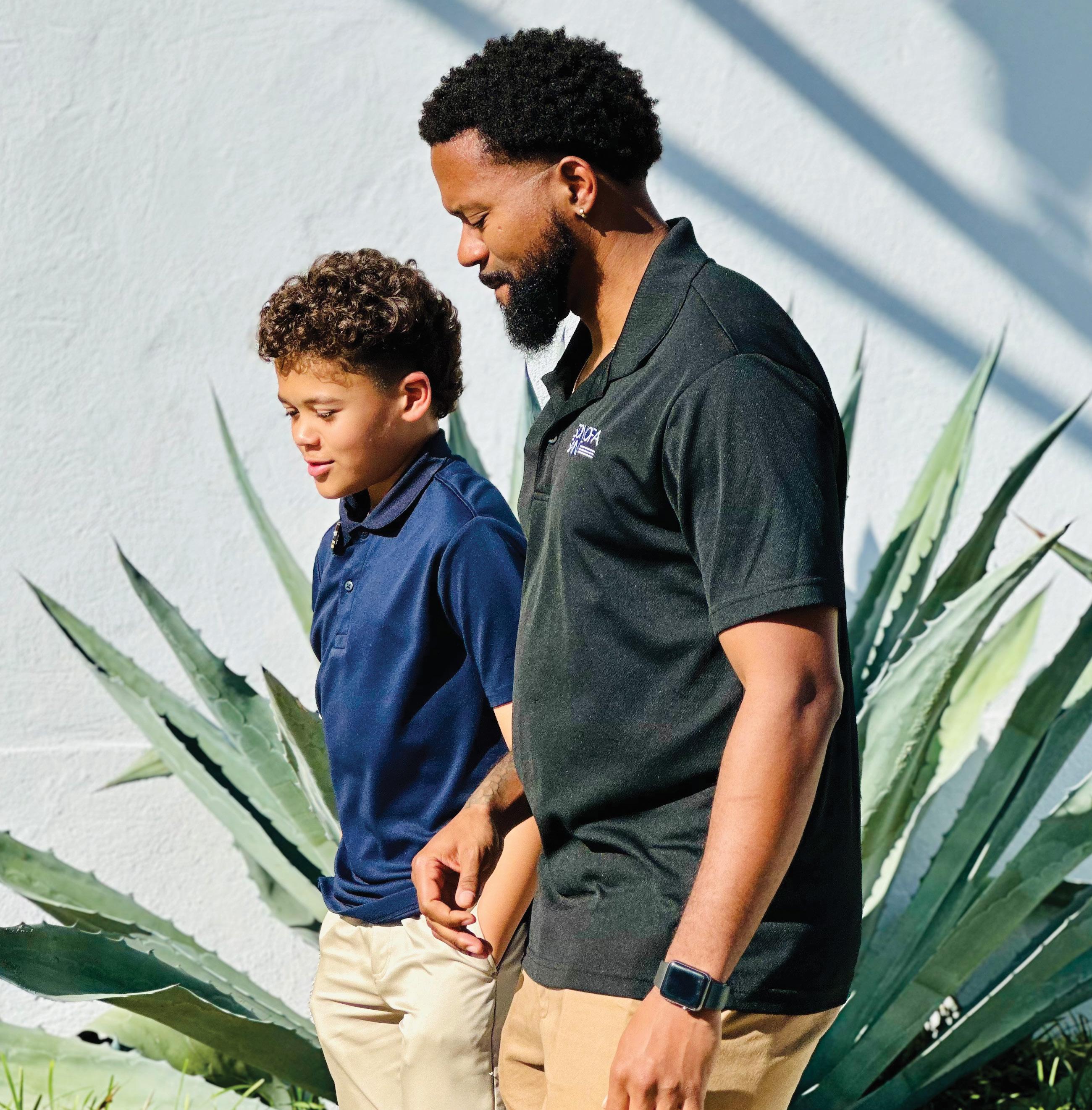
THANK YOU
We want to take this opportunity to once again acknowledge your commitment to our cause!
We hope that this handbook has been helpful; if you have additional questions or suggestions to improve this resource please contact volunteer@sonofasaint.org
